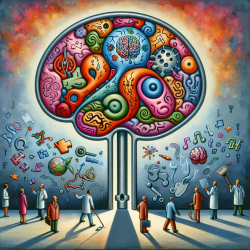Kurt Goldstein, a German-American neurologist, made significant contributions to the field of neuropsychology, particularly in understanding language disorders such as aphasia. His work has been instrumental in bridging the gap between localizationist and holistic approaches to brain function. This blog explores how practitioners can implement Goldstein's insights to improve their therapeutic skills and encourage further research in this area.
The Historical Context of Goldstein’s Work
Goldstein's career spanned a tumultuous period marked by world wars and significant scientific advancements. Despite being forced to flee Nazi Germany, his work continued to influence the field of neuropsychology. He was a pioneer in integrating philosophical anthropology with clinical neurology, emphasizing the brain's holistic nature rather than viewing it as a collection of isolated parts.
The Debate: Localizationism vs. Holism
The early 20th century saw a heated debate between proponents of brain localizationism—who believed specific functions could be pinpointed to precise areas—and those advocating for a more holistic view. Goldstein was pivotal in this debate, arguing that the brain functions as an integrated whole. His work suggested that understanding brain injuries required considering both localized damage and the overall functional capacity of the nervous system.
Implications for Modern Practitioners
Goldstein’s insights are invaluable for today’s clinicians working with language disorders. Here are some ways his work can enhance your practice:
- Holistic Assessment: Incorporate a comprehensive approach when assessing patients with aphasia or other neurological conditions. Consider both the specific symptoms and how they fit into the broader context of the patient's overall health and capabilities.
- Interdisciplinary Collaboration: Embrace interdisciplinary methods by collaborating with psychologists, therapists, and other specialists to provide well-rounded care.
- Cognitive Rehabilitation: Focus on rehabilitation strategies that promote brain plasticity and adaptability, which are key components of Goldstein's theories.
- Cultural Sensitivity: Recognize the cultural and historical contexts that may influence both patient experiences and therapeutic approaches.
The Path Forward: Encouraging Further Research
The field of neuropsychology is ever-evolving, and there is much more to learn from Goldstein’s legacy. Practitioners are encouraged to delve deeper into historical research to uncover insights that may have been overlooked or underappreciated. By doing so, you can contribute to a more nuanced understanding of brain function and improve patient outcomes.










